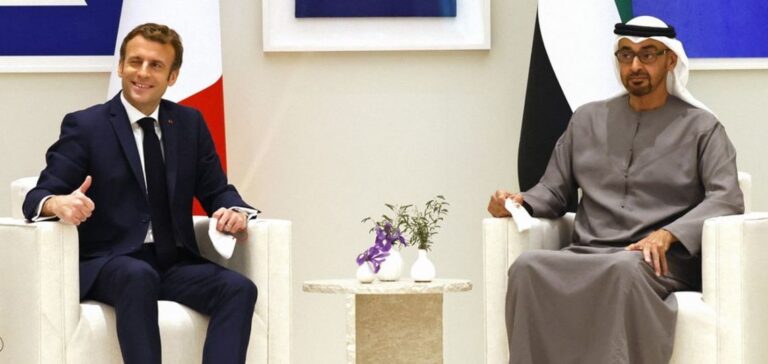France’s trade with the United Arab Emirates and Qatar has increased compared to the period prior to the Covid-19 pandemic, the French Foreign Trade Minister told AFP on Thursday, describing this “growth” as “good news”.
France, Emirates and Qatar: energy cooperation and trade growth
“We’re back to the level of exchange we had before Covid, and even better,” said Olivier Becht in Dubai, during a visit to the Emirates after talks in Qatar.
He pointed out that trade had exceeded 7 billion euros a year for the Emirates, compared with 6 billion before the pandemic. And they reached over 4.6 billion for Qatar, almost double the pre-Covid level.
Last year, during a visit to Paris by Emirati President Mohammed ben Zayed Al-Nahyane, the Emirates and France signed a strategic cooperation agreement in the energy sector, notably in the fields of hydrogen, renewable energies and nuclear power.
Following a meeting with Mr. Becht, UAE Minister of State for Foreign Trade Thani al-Zeyoudi said on Wednesday that “commercial ties between the United Arab Emirates and France are developing rapidly”, claiming that bilateral non-oil trade had increased by more than 20% in 2022 compared to 2021.
Franco-Qatari trade relations have also been boosted by an energy partnership. Particularly following Russia’s invasion of Ukraine, which triggered an energy supply crisis.
Trade figures with Qatar “have almost doubled”, remarked the French Minister, explaining that this was mainly due to imports of liquefied natural gas (LNG), “which we need so much” in the context of the war in Ukraine. France will “continue to use gas over the next few years”, as the energy transition takes place over a “long time”, he stressed.
Among the main areas of cooperation with Qatar and the United Arab Emirates is energy transition, Becht added.
With a particular focus on electric cars, green hydrogen and sustainable aviation fuel.






















